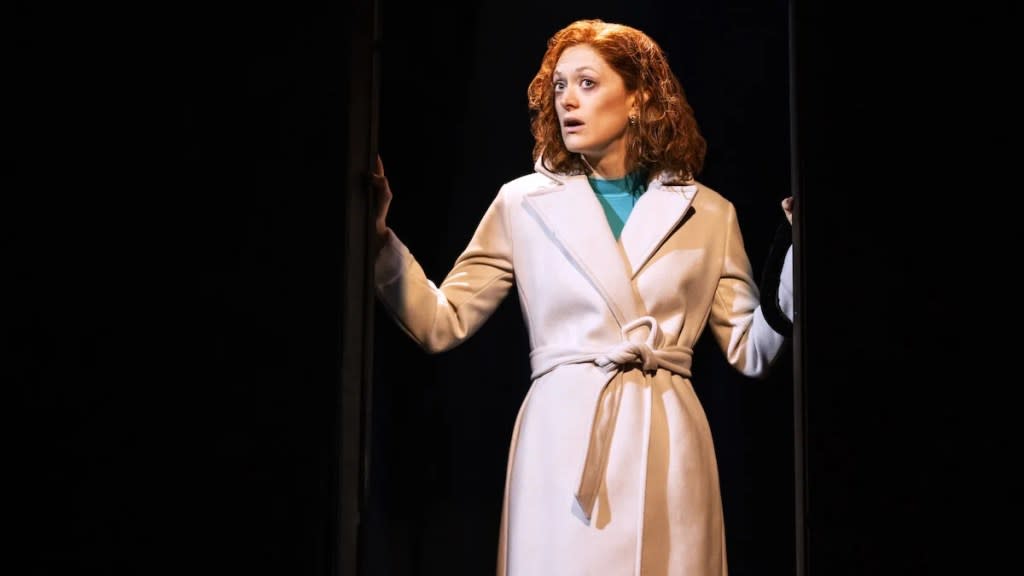‘Spain’ Off Broadway Review: A Movie Classic Gets a Makeover

Has any major writer taken a bigger hit over the decades than Ernest Hemingway?
He is the buffoon in Jen Silverman’s play “Spain,” which had its world premiere Thursday at Second Stage’s Tony Kiser Theatre. Although “The Spanish Earth,” which Hemingway wrote with John Dos Passos, is never mentioned during the course of Silverman’s 90-minute one-act play, that 1937 anti-fascist film is the elephant – or is it a bull? — in the room of an apartment shared by the film’s director, Joris Ivens, with his partner, Helen, in “the West Village, 1936.”
Even before “Spain” begins, that setting of “the West Village, 1936” in the Playbill credits may be a bit head-shaking. Back then, wasn’t it called “Greenwich Village”? Just asking.
Downright head-scratching is why Hemingway (Danny Wolohan), Ivens (Andrew Burnap) and Dos Passos (Erik Lochtefeld) are all named and Ivens’s common-law wife, Germaine Krull, gets stuck only with a first name, Helen (Marin Ireland). Is that because Krull was a photographer and Helen is a movie director (although not a very active one) and more resembles Ivens’s other wife, Marceline Loridan-Ivens, whom he married (legally) in 1963?
“Spain” begs all sorts of such questions regarding “The Spanish Earth,” not the least of which is why the film’s famous narrator (Orson Welles), composer (Marc Blitzstein) and music arranger (Virgil Thomson) are not included in this occasionally diverting, occasionally obscure party of notables. Considering Silverman’s treatment of Hemingway, those dead artists who are not mentioned here can only be thankful that their reputations remain unscathed. Woody Allen does a similar macho send-up of Hemingway in “Midnight in Paris,” but there the character’s appearances are stylish, brief and delivered with a bit of modicum, by actor Corey Stoll. Silverman has written and Wolohan presents a far more blunt (and unfunny) interpretation of a blaggard sexist.
Burnap and Ireland are given more nuanced material, and they are engaging (and her character is often delightfully drunk) as they negotiate the moral land mine of taking directives from a Soviet apparatchik named Karl (Zachary James, being visually and vocally sinister), because they are making a movie that is basically Soviet propaganda. (Not mentioned by Silverman: When “The Spanish Earth” was shown at the White House in 1938, Eleanor Roosevelt congratulated the filmmakers but told them the film wasn’t propagandistic enough.)
While “Spain” is a play about artists who are dupes and why the art they make doesn’t really change anything – everything is explained in a final scene that is set several decades into the future – there’s nothing questionable about Tyne Rafaeli’s cinematic direction of Silverman’s play. While the dialogue sometimes goes static, Rafaeli always dazzles and keeps the visuals moving on Dane Laffrey’s sliding-door set that never stops finding new ways to introduce James’ Karl, always bathed in Jen Schriever’s atmospheric lighting, who steals the show.
Very forbidding members of the Communist Party, who also sing opera, have a way of doing that.
The post ‘Spain’ Off Broadway Review: A Movie Classic Gets a Makeover appeared first on TheWrap.

